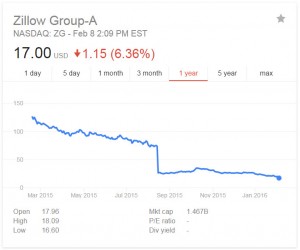If this doesn’t scare the heck out of you, nothing will. The unparalleled concentration of wealth is accompanied by:
- domestic legislative power/influence
- international and domestic control of financial markets
- control of information/data distribution
Together this represents too much control in the hands of too few people. Not complicated.
Number 3 is of particular importance and may appear to be the least threatening to folks like us here on the ground. But think of it this way: what if there was only one bank. J.P Morgan Chase would like that. They have enjoyed the ride as one financial meltdown after another, together with acquisitions of all regional competition, has narrowed the field of commercial banks from thousands to the following top 10:
10. TD Bank U.S. Holding Co. Assets: $253.2 billion
9. HSBC North American Holdings Inc. Assets: $291.61 billion
8. Capital One Financial Corp. Assets: $313.7 billion
7. PNC Financial Services Group Inc. Assets: $362.13 billion
6. Bank of New York Mellon Corp. Assets: $377.37 billion
5. U.S. Bancorp Assets: $415.94 billion
4. Wells Fargo & Co. Assets: $1.75 trillion
3. Citigroup Inc. Assets: $1.77 trillion
2. Bank of America Corp. Assets: $2.15 trillion
1. JPMorgan Chase & Co. Assets: $2.42 trillion
Sorry the list is in reverse order. Sorry that it is so short! It should be shocking that the number one bank is nearly 10 times larger than number 10…in the entire country!
Then I read this in this morning’s Seattle Times: A Talk With Zillow’s Co-founder….
I urge you to read ALL of this interview and tell me these guys are true entrepreneurs. Tell me they are visionaries bringing us unprecedented value through their efforts. I’ll tell you what I think of what they’ve accomplished: they’re riding the wave of consolidation that has been built into the American psyche as a good thing. It’s good for pizza (Domino’s, Papa Johns), cell phone service (AT&T, Verizon), computer operating systems (Microsoft, Apple), it’s good for everything else (Amazon), etc.
Take this wave of consolidation and imagine it applied to all aspects of your life. Imagine one or two car dealers for all brands (it’s happening more than you might think), one or two stores for home improvement/maintenance (Home Depot, Lowe’s), one or two store for just about anything (Walmart, Costco).
What do you get when you go to these stores? More importantly, what DON’T you get?
- choices of product
- trained salespeople
- discount pricing (not as much as you’d think)
- follow-up of any kind
I know we’d all miss the chance to walk a quarter mile to the front door of these stores…NOT. The biggest concern I have is “look what we’ve been conned into accepting as good and/or normal”. We didn’t ask for this consolidation into warehouse stores and web-shopping. It has been forced upon us. Expedia and Zillow are no different. However they are different in one major way: were it not for Costco, Walmart, Chase Bank, Amazon, etc. paving the way to our acceptance of “Bigger is Better” they never would have left the ground. Why? The lack of value.
Venture capitalists are the lifeblood of such endeavors as they begin. Old and new money consolidated into chunks of disposable cash that can be thrown at the wall until an endeavor pays off. Expedia and Zillow founder Rich Barton is a purveyor of web-based snake oil endeavors, the likes of which has never been seen.
His formula for success: target an industry that uses computers to share information, then acquire/steal that information and repackage it as his own. It’s really that simple. How’s that working for you? Have you booked a vacation via Expedia? Have you bought or sold a home via Zillow? If something went wrong who did you call? Nobody. We’ve been conditioned to accept mediocre/no service in lieu of perceived savings and convenience.
So how is Zillow doing it? Their stock has been doing very poorly of late, down from $125/share one year ago to about $16.50/share today. Since ad revenue began to fall off, and the VC ran dry, Zillow has been trying to con real estate brokers into buying ads on their website. The promised return for brokers is customer leads generated from the Zillow website. It has taken a few years for this snake oil to wear off, but brokers have come to understand that web generated leads are generally not worth the email in which they are sent and received.
The perception that Zillow provides real estate information not generally available to the public has eroded badly. Not only do most multiple listing services provide a public access portal, but every self-respecting brokerage does so, and even thousands upon thousands of individual real estate agents provide access to far more accurate, timely and useful online information than Zillow ever will. So who goes to Zillow? No one that matters to the industry. As the agents that wasted money advertising there have learned, Zillow visitors are not a source of business for them. They are mostly cold, dead leads.
The Seattle Times article is nothing more than corporate bluster, a disingenuous attempt to save a dying entity, a broken business model. If you don’t believe me take another look at the one year Zillow stock graph.
Consolidation of information and data is just as disturbing as consolidation of wealth. With each step the average consumer becomes less relevant.

Share this Post
